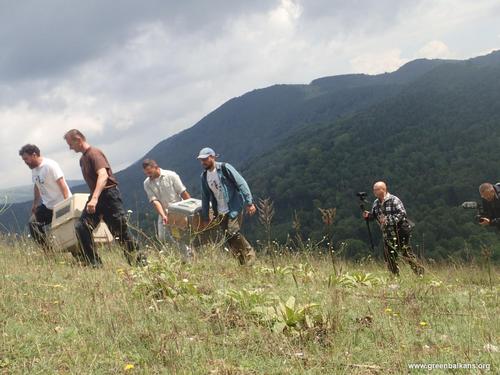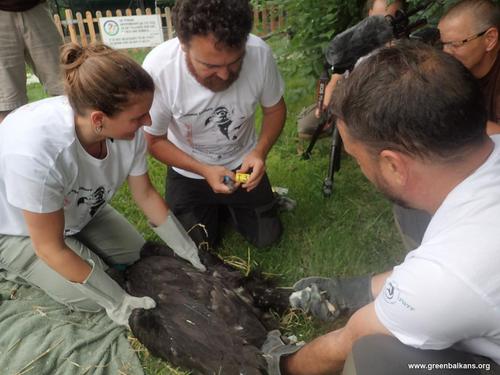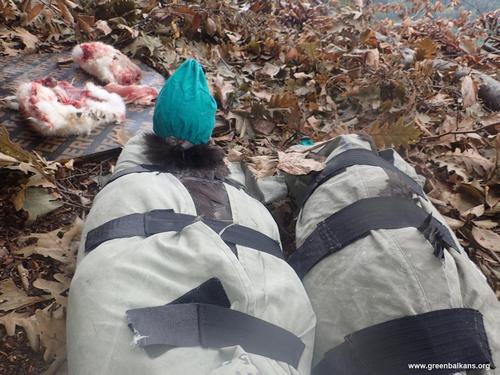Three young cinereous vultures are about to be released in the wild. In the eastern part of the Balkan range, our partners of Green Balkans and Fund for Wild Flora and Fauna are preparing the big birds for this upcoming step in their lives. The three vultures are supposed to prepare the way for the endangered species to be able to breed in Bulgaria again in the near future. EuroNatur is a partner of this international project.

In boxes the vulture protectors carry Boyan and Ostrava in their new habitat.
© Green Balkans
Both cinereous vultures are ringed and transmitted. Also on board: The Bulgarian press
© Green Balkans
Still well packaged, but soon in freedom. And the food is already waiting for the two scavengers...
© Green BalkansStill a bit sceptical towards their new home to be, the two young cinereous vultures Boyan and Ostrava are certainly going to feel comfortable in the tree-covered mountains of Bulgaria after a short while. Together with Riga, the third vulture in the alliance, whose arrival in Bulgaria is planned for the beginning of August the vultures were bred in captivity and are now being trained in an adaptation aviary (the so-called hack) for life in the wild. In the hack they are still being fed and watched from a distance but not too far in the future Boyan and its fellow species are meant to be able to survive on their own. The vultures have been tagged with colour rings and satellite transmitters to enable the scientists of Green Balkans and Fund for Wild Flora and Fauna to trace the exact position of their fosterlings at any given time, once they have been released in the wild.
The two Bulgarian nature conservation organisations, EuroNatur, NGOs from Spain and Switzerland as well as zoos from Latvia and the Czech Republic are involved in this project which aim it is to re-establish a population of cinereous vultures in Bulgaria. These big carrion eating birds have been extinct there as breeding birds since the 1930s but in recent years vulture conservationists have improved the conditions for the return of the cinereous vultures to Bulgaria considerably.
In this video you experience the first moments of Boyan and Ostrava in their new home.


